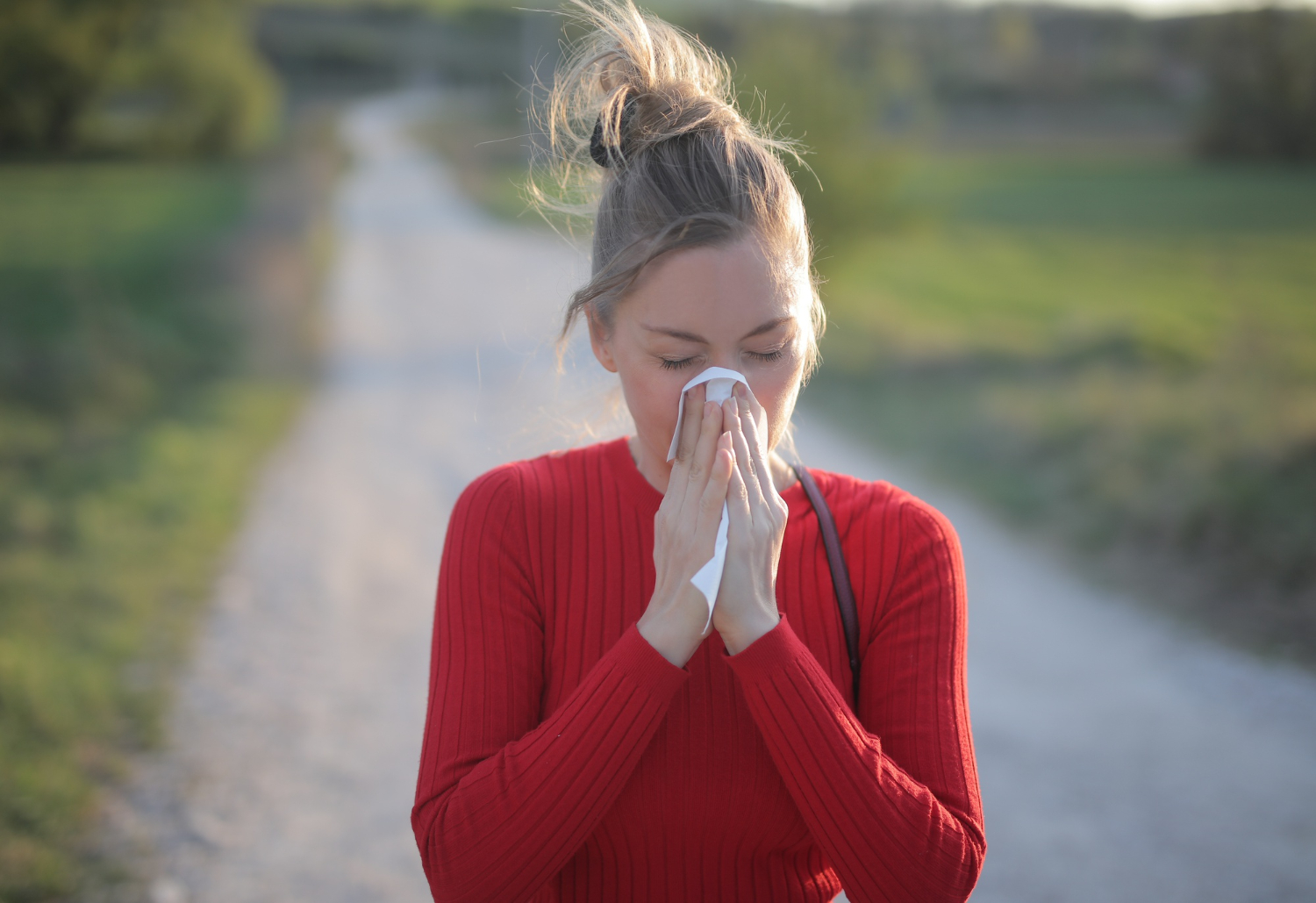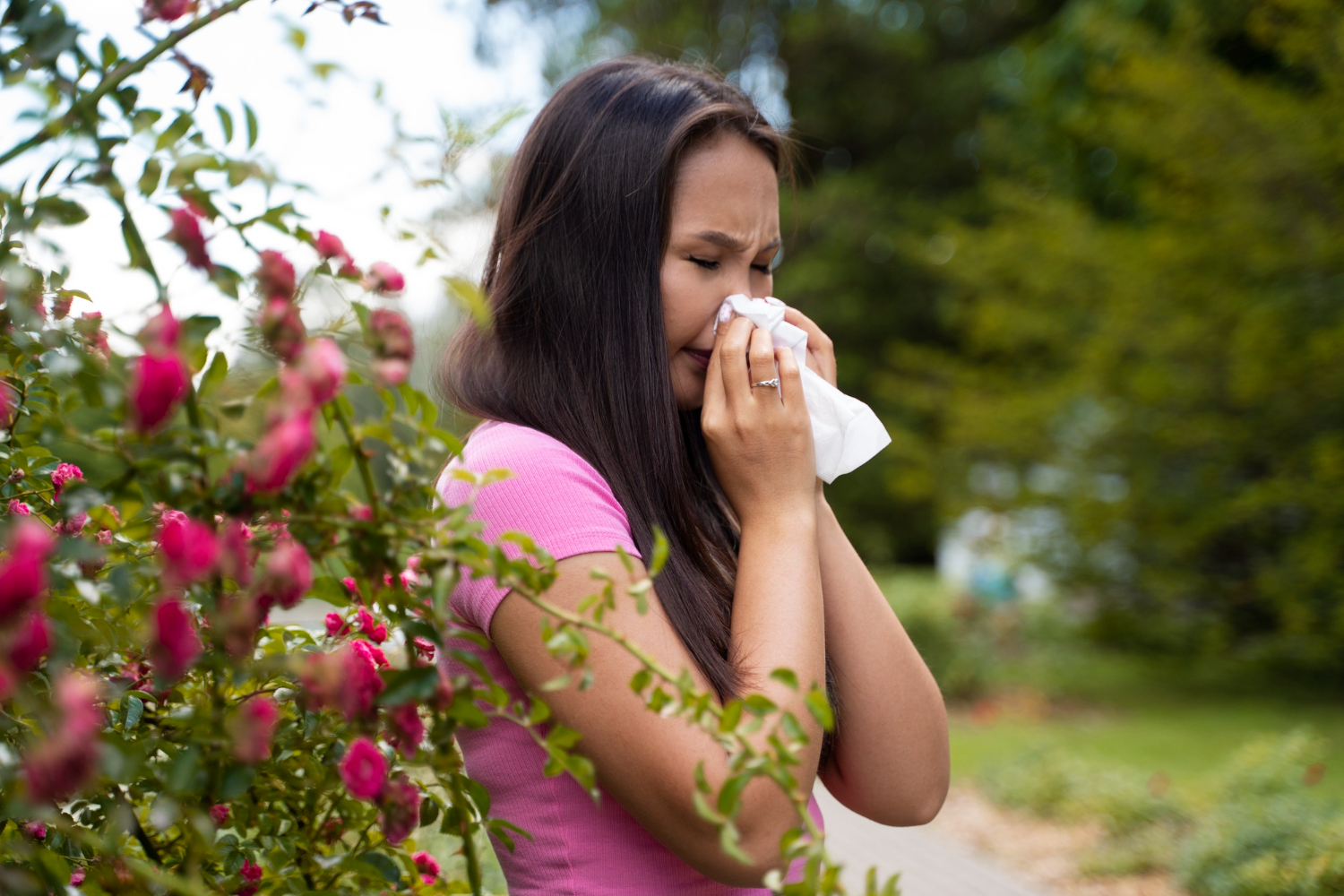
How Does Immunotherapy Work for Allergies?
You’ve probably noticed that your nose is stuffy and runny when you suffer from seasonal allergies. Allergic reactions cause airways in your nostrils to become inflamed, which keeps them from unclogging naturally and keeps all that mucus trapped inside.
Your immune system overreacts to allergens by producing proteins called antibodies and chemicals called histamines. These proteins/chemicals fight the harmless allergens, causing your allergy symptoms. But can you teach your body that pollen or pet dander is harmless?
Immunotherapy introduces a small amount of your allergen, the pollen, through allergy shots into your body. Instead of letting your body overreact and create emergency defenses, allergy therapy teaches your immune system that what you’re allergic to isn’t as harmful as it was once perceived. This blog will walk you through how Immunotherapy works in treating allergies.
Allergies and the Immune System
Your immune system and your allergies are closely related. First, it’s essential to understand the immune system.
The immune system is a critical mechanism of the body because it works by protecting the body against harmful bacteria, viruses, and other foreign substances that can cause harm. But in some cases, it can also work against us when our body’s immune system responds aggressively to a harmless substance. This response is known as an allergic reaction. It’s essential to ensure that your body’s immune response doesn’t affect your health adversely because it may be reacting to something harmless or even beneficial to it.
Your body is exposed to a variety of pathogens (think bacteria, viruses, etc), allergens, and a host of chemicals during your everyday life. The human immune system evolves and learns over time to distinguish harmful substances and pathogens from harmless or beneficial ones. The body’s immune system recognizes harmful pathogens and foreign substances and clears them. Unfortunately, the body’s immune system is not perfect and can sometimes mistake food, pollen, or harmless chemicals for harm-causing substances and mount an aggressive defense. This aggressive defense is known as an allergic reaction.
How does allergy immunotherapy work?
Allergy immunotherapy works by exposing your body to a gradually increasing amount of allergen. Your body responds to this exposure by developing immunity or tolerance to the allergen. Immunotherapy exposes your body to just the right amount of allergen to stimulate your immune system but not cause a severe allergic reaction. The increasing doses build tolerance resulting in allergy symptoms subsiding over time.
Types of Allergy Immunotherapy
Subcutaneous Immunotherapy (SCIT)
Subcutaneous Immunotherapy (SCIT) involves an allergen injected into the subcutaneous fatty layer of skin. It effectively treats allergies to trees, pollen, dust, and insect stings. SCIT can protect against more allergens than Sublingual Immunotherapy. Subcutaneous Immunotherapy or SCIT is considered the most effective allergy immunotherapy used today.
Sublingual Immunotherapy (SLIT)
Sublingual (under the tongue) Immunotherapy is a type of allergy immunotherapy where the allergen is administered as a dissolvable tablet or drops under the tongue.
Oral Immunotherapy or Traditional Immunotherapy
OIT involves eating a food allergen starting with a small amount and gradually increasing the dosage over time. This is done to retrain the immune system and raise the threshold for the amount of food protein that causes the allergic reaction. If OIT is successful the patient is desensitized and can eat a large amount of the food they were allergic to without any adverse reaction.
Cluster Immunotherapy or Rush Immunotherapy
Rush Immunotherapy or Cluster Immunotherapy provides a way for patients to develop immunity or tolerance to their allergens within weeks rather than months, allowing patients to achieve long-lasting allergy relief in fewer overall office visits. Immunotherapy helps build the body’s tolerance to an allergen that triggers allergic symptoms by introducing increasing doses of the substance through subcutaneous injection.
Allergies treated with Immunotherapy
Environmental allergen immunotherapy
Immunotherapy for environmental allergens is effective for pollen allergies, mold allergy, animal dander (cat allergies and dog allergies), house dust mite allergy, cockroach allergy, and insect venom hypersensitivity.
Food allergy immunotherapy
Food allergy immunotherapy is a treatment to build up a tolerance to small quantities of a food allergen. Although not a cure, food allergy immunotherapy can help avoid life-threatening reactions. FDA recently approved food allergy immunotherapy for peanuts in January 2020.
Benefits of Allergy Immunotherapy
While medications can relieve some symptoms of allergies, they do not provide a lasting cure. Most people only experience relief for as long as they take their daily medication. In contrast, allergy shots that get administered once a week in the beginning to once a month can cause long-lasting allergy relief. Some people reach complete remission from their allergy symptoms after 3 to 5 years of treatment. In addition to reducing allergic symptoms and reactions, allergy immunotherapy can prevent the development of new allergies and prevent the progression of allergic disease from allergic rhinitis to asthma in children.
How Do Allergy Shots Work?
Allergy shots are a form of allergy immunotherapy. Allergy shots work by injecting a gradually increasing amount of allergen into your body. Your body responds to this exposure by developing immunity or tolerance to the allergen. Immunotherapy exposes your body to just the right amount of allergen to stimulate your immune system but not cause a severe allergic reaction. The increasing doses build tolerance resulting in allergy symptoms subsiding over time.
Allergy Shots for Children
Allergy shots are effective for both adults and kids. Research has shown that for children with allergic rhinitis, allergy shots can prevent them from getting asthma. Unlike medication that reduces allergy symptoms, allergy shots treat the underlying cause of allergies. Allergy treatment can prevent sinus problems, improve the overall well-being of your child and reduce allergy and asthma symptoms. Allergy shots are typically not recommended for children under 4 years of age mainly because children may not be able to effectively communicate if they are having any adverse reactions.
Frontier Allergy and Immunotherapy treatment
Frontier Allergy Asthma and Immunology provides comprehensive evaluation and treatment for allergies through a variety of immunotherapy treatments. We provide comprehensive testing and evaluation through a personalized approach.

Written/Reviewed by: Dr. Neha Reshamwala
NPI number: 1780874578
Page last reviewed: 03/31/2022


 All blog posts
All blog posts





